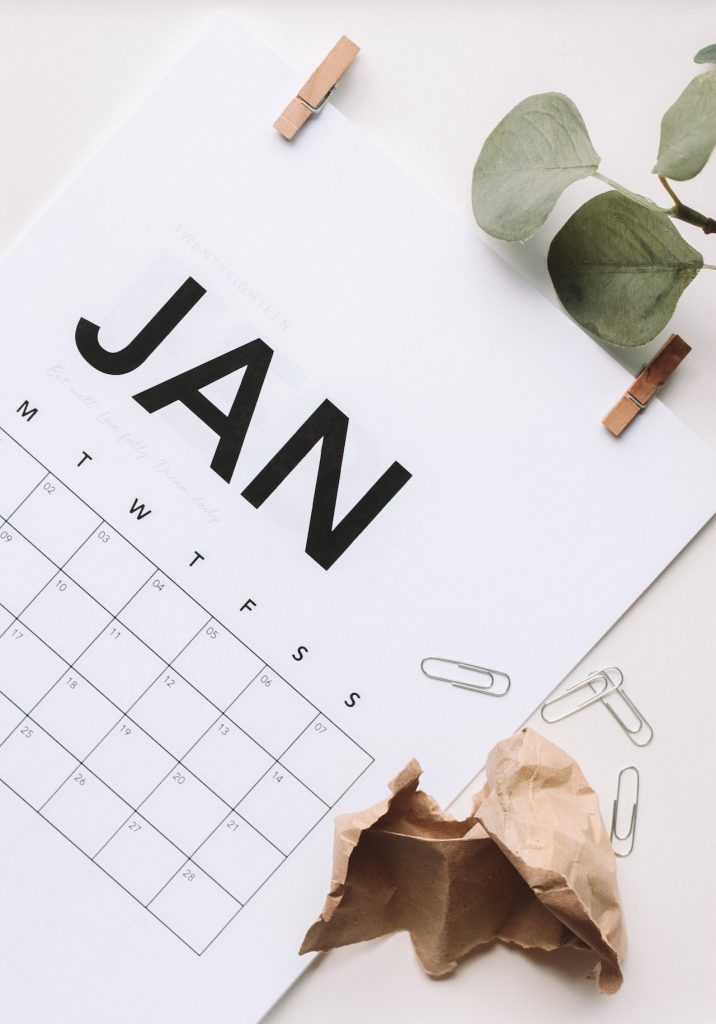There is something disingenuous about the month of January.
It masquerades as a brand new beginning, replete with fresh starts and promising potential, even though residual baggage from the previous year often simmers beneath the shiny veneer. This can range from unfinished assignments at work to more complicated situations, like a relationship you haven’t gathered the courage to end.
Emerging from the bubble of the holiday season come January 2nd, you believe you will magically begin the new year on a clean slate. You assume you will find closure, as long as you KonMari your room, do a social media purge, sign up for gym memberships, and return to Inbox Zero before the first day of work.
You have, you believe, firmly shut the door on the previous year, blissfully unaware that it was a revolving door.
As a result, January often feels like the dreaded hangover after a night of heavy drinking and partying. The night before spills over into the morning after; your head is throbbing and you need more time to get your bearings sorted.
In this case, January’s sluggish energy weighs you down from fully transiting into the next 365 days.
It’s a universal feeling that January can feel tediously l-o-n-g. Countless articles online point out various reasons, such as how January is often solely dedicated to work. Apparently, having fun appears to be the “biggest predictor of whether you experience time going slowly or quickly”.
Another reason is that we become acutely aware of time in January, precisely because of our new year’s resolutions. We try to go to the gym more, painstakingly measure our calorie intake, or commit to being in the office every day before 8 AM. Because we’re trying to cultivate habits, we don’t naturally enjoy doing these things, so time seems to crawl by.
But this January, in particular, didn’t just feel long. It felt like we were still in the exceedingly tiresome year that was 2018.

For one, many of us hold jobs where we aren’t really free to go on leave as we please. We’re entitled to our annual leave days, but we feel guilty for going on leave without a ‘valid’ reason, such as only after we’ve slogged for several months without rest. This is the same guilt we feel if we’re the first to leave the office on the dot while our colleagues do overtime.
Otherwise, we’re told we must inform our employers way in advance if we wish to apply for leave. Often, this is to ensure there’s someone else to fill in for the work we won’t be around to do; a burden each member of the team shoulders in turn. Unsurprisingly, some of us even feel bad for giving our colleagues more work by going away.
Because there’s just too much logistics involved, many of us often decide to continue working, even when our bodies desperately need a break.
Moreover, many workplaces expect us to be at our desks from the beginning to the end of each work day, because we’re told that visibly working is the hallmark of a hardworking, productive employee.
Naturally, this cultivates a culture of distrust between employer and employee, with the latter internalising that they need to show how hard they work in order to justify their worth. This may include bringing work home or on holiday, choosing to work from home when feeling unwell instead of taking a sick day, and subconsciously always thinking or talking about work.
In the end, we’re restless and exhausted, but we never ever stop freaking hustling. We fail to draw a clear separation between work and play, because we genuinely don’t know what that reality looks like.
Instead of work-life balance, we now aim for work-life integration, as if the latter were indeed an ideal aspiration.
Of course, this lack of distinct boundaries also manifests in our personal lives. After a break up or falling out, we used to be able to confidently believe that our exes or former friends were out of sight, out of mind. Now, they live in our digital social circle forever, separated by a couple degrees of connection at best.
It is nearly impossible to distinguish one year from the next when every memory or experience, personal and professional, blends into one another. Yet because we’re told that January 1st must feel like a new year; a fresh start; a soul cleansing rebirth, we’re thrown rudely off course from life’s expected trajectory when it just doesn’t.

Allowing a random date to dictate how we live our lives has always been foolish. Perhaps we needed to realise that it’s also pointless, in order to stop. With this liberating and renewed outlook on life, new year’s resolutions shouldn’t be relevant anymore. We should be free to begin again with whatever we want, whenever we want.
But clock time passes differently from mind time. I read once that time seems to pass faster as we age because we make fewer new memories. When we are young, almost everything we experience is new stimuli to our brain, so it feels like time passes more slowly as our minds learn to process the unfamiliar.
As we get older, we mostly relive old stimuli or regularly go through established routines. Without a constant influx of new ‘information’ to process in our brain, we get the sense that time passes more rapidly.
All this to say that even though January felt like an extension of 2018 and hence needlessly long, time also seemed to pass too quickly. Since the start of this year alone, I’ve found myself often yearning for all the lives I wish I could live and all the things I wish I could do, only to end up feeling paralysed by the lack of time to do everything.
But I want to believe that time is what I make it. If I am intentional with how I spend it, with or without boundaries to mark beginnings and endings, then any month can be either version of January: unnecessarily taxing or deliciously long-drawn.






